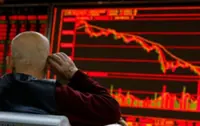HOUSTON: Oil prices fell nearly 4% on Wednesday to their lowest settlements since June, as worries about global fuel demand mounted after US data showed a larger-than-expected rise in gasoline inventories.
Brent crude futures settled down US$2.90, or 3.8%, at US$74.30 a barrel. US WTI crude futures fell by US$2.94, or 4.1%, to US$69.38 a barrel.





